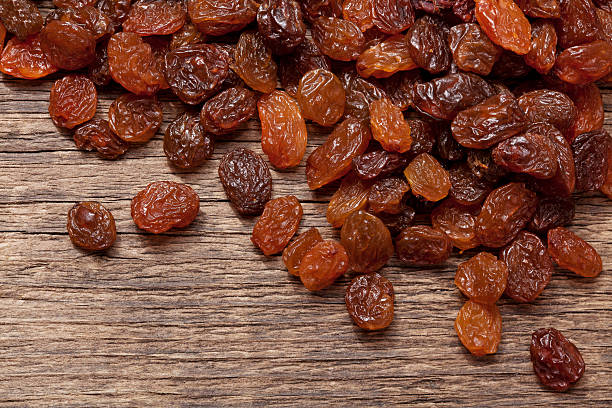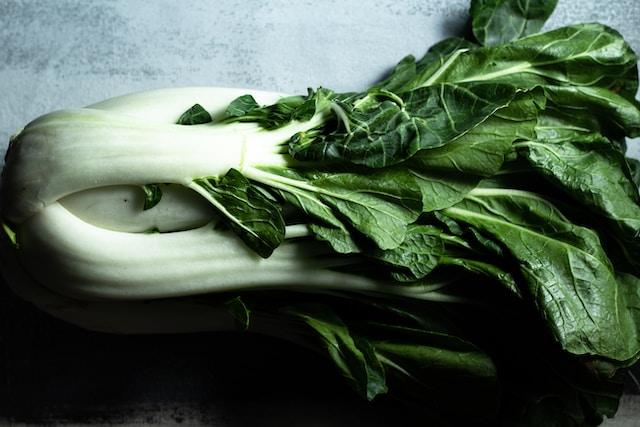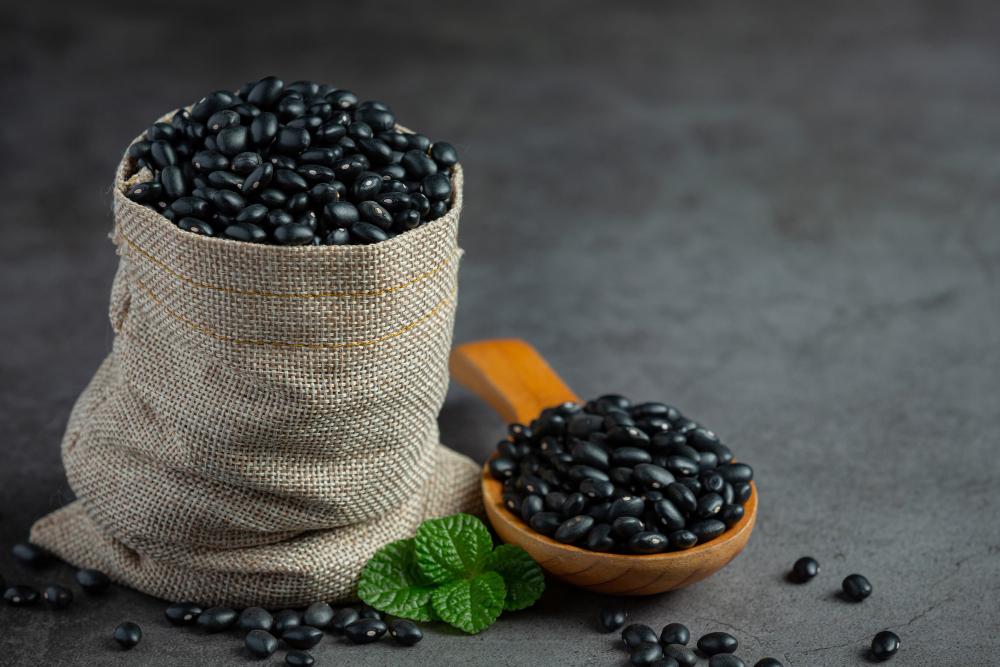No products in the cart.
16 Surprising Health Benefits of Eating Raisins Every Day
If you’re looking for a sweet and nutritious snack, look no further than raisins! These tiny dried fruits are packed with vitamins, minerals, and antioxidants, making them a healthy addition to your diet.

Not only do they taste great, but they also provide a host of health benefits. In this article, we’ll explore 16 surprising health benefits of eating raisins every day.
What are Raisins?
Raisins are a type of dried fruit that is made from grapes. They are typically small, wrinkled, and sweet, with a chewy texture. Raisins are a popular ingredient in baked goods and trail mixes, but they can also be enjoyed on their own as a snack. In addition to their delicious taste, raisins are also loaded with nutrients that can benefit your health.
Nutritional Content of Raisins
Raisins are a concentrated source of nutrients, meaning that they contain a high amount of vitamins, minerals, and antioxidants per serving. Some of the key nutrients found in raisins include:
- Fiber: Raisins are a rich source of dietary fiber, which can aid in digestion and promote feelings of fullness.
- Iron: Raisins are high in iron, a mineral that is essential for the production of red blood cells.
- Potassium: Raisins are a good source of potassium, which can help regulate blood pressure and support muscle function.
- Calcium: Raisins contain calcium, a mineral that is important for bone health and muscle function.
- Vitamin C: Raisins are a good source of vitamin C, an antioxidant that can boost immune function and protect against disease.
- Vitamin A: Raisins contain vitamin A, which is important for eye health and immune function.
In fact, raisins are more nutrient-dense than fresh grapes, as the drying process removes the water content and concentrates the nutrients.
15 Health Benefits of Eating Raisins Every Day
Raisins have a variety of health benefits that make them a great snack for people of all ages. Here are 15 reasons why you should incorporate raisins into your daily diet.
- Promote digestive health
Raisins are high in dietary fiber, which can help promote digestive health. Fiber adds bulk to stool, making it easier to pass through the digestive tract. This can help relieve constipation and promote regularity. Additionally, the soluble fiber found in raisins can help prevent the formation of stomach ulcers by protecting the stomach lining from harmful acids.

2. Boost energy and metabolism
Raisins are a good source of carbohydrates (natural sugars), which can provide you with energy. Eating raisins can help sustain your blood sugar levels and keep you feeling energized throughout the day.
The fiber and complex carbs in raisins can help boost metabolism, making it easier to burn more calories and lose weight and improve athletic performance.
3. Support heart health
Raisins contain a variety of antioxidants and minerals that can help support heart health. Potassium, for example, helps regulate blood pressure and reduce the risk of stroke and heart attack.
Additionally, the polyphenols found in raisins can reduce inflammation, which is associated with an increased risk of heart disease.
4. Improve bone health
Raisins are high in calcium, a mineral that is important for bone health. Calcium helps strengthen bones and can reduce the risk of osteoporosis. Additionally, raisins are a good source of vitamin K1, which helps with the absorption of calcium into the bones.
Therefore, eating raisins regularly can help improve bone health and reduce the risk of fractures.
5. Aid in weight loss
Raisins are a great snack for those trying to lose weight, as they are low in calories but high in fiber and nutrients. Eating raisins can help you feel full longer while providing essential vitamins and minerals.
Again, the complex carbohydrates found in raisins can help boost metabolism and burn more calories, making it easier to lose weight.
6. Fight inflammation
Raisins are rich in antioxidants and polyphenols that can help reduce inflammation, which is associated with an increased risk of chronic diseases. Additionally, the vitamin C found in raisins can help fight off free radicals that can cause damage to cells and lead to inflammation. So, having a serving of raisins regularly can help fight inflammation and reduce the risk of disease.
7. Support eye health (improved vision)
Raisins are a good source of vitamin A, which is important for eye health. Vitamin A helps protect against age-related vision problems such as macular degeneration and cataracts. Additionally, the antioxidants found in raisins can help fight off free radicals that can damage the eyes and lead to vision problems.
8. Boost immunity
Raisins are a good source of vitamin C, which is an antioxidant that can boost immune function and protect against disease. Vitamin C helps increase white blood cells and antibodies, which can help fight off infections and diseases. Moreover, raisins contain a variety of other antioxidants that can help reduce inflammation and support immune health.
9. Reduce cholesterol levels
Raisins are a good source of soluble fiber, which has been shown to reduce cholesterol levels by binding to it in the digestive tract and removing it from the body.
The polyphenols found in raisins can help reduce inflammation, which is associated with an increased risk of heart disease and stroke. Eat raisins regularly to help reduce cholesterol levels and improve heart health.
10. Support oral health (improved dental hygiene)
Raisins contain a variety of antioxidants and minerals that can help support oral health. The calcium found in raisins can help strengthen the teeth and reduce the risk of cavities.
The vitamin C found in raisins has been shown to reduce inflammation, which is associated with an increased risk of gum disease.

So, eating raisins regularly can help improve oral health and reduce the risk of cavities and gum disease.
11. Improve skin health
Raisins are a good source of vitamin C, which is an antioxidant that can help Promote healthy skin cell regeneration. Vitamin C helps reduce inflammation, which is associated with an increased risk of wrinkles and other signs of aging.
Additionally, the antioxidants found in raisins can help fight off free radicals that can damage the skin and lead to premature aging.
12. Prevent anemia
Raisins are a good source of iron, which is an essential mineral for red blood cell production. Iron helps increase hemoglobin levels in the blood, which can help prevent anemia.
Also, the vitamin C found in raisins can help with the absorption of iron into the body. Therefore, eating raisins regularly can help prevent anemia and improve overall health.
13. Fight depression
Raisins are a good source of magnesium, which is an important mineral for mental health. Magnesium helps reduce symptoms of anxiety and depression, as well as boosts mood and energy levels.
Furthermore, the complex carbohydrates found in raisins can help boost serotonin levels in the brain, which can help improve mood and fight off depression. So, eating raisins regularly can help reduce symptoms of depression and improve overall mental health.
14. Lower cancer risk
Raisins are a good source of antioxidants, which can help reduce the risk of cancer. Antioxidants help fight off free radicals that can cause damage to cells and lead to inflammation, which is associated with an increased risk of cancer.
Additionally, the polyphenols found in raisins can help reduce inflammation and protect against oxidative stress, which is also associated with an increased risk of cancer. Therefore, eating raisins regularly can help reduce the risk of cancer and improve overall health.
15. Aid in sleep
Raisins are a good source of magnesium, which is an important mineral for sleep. Magnesium helps relax the muscles and promote healthy sleep patterns. Additionally, the tryptophan found in raisins can also help induce sleep and improve the overall quality of sleep. Consume raisins regularly to achieve better quality and longer duration of sleep.
16. Improve brain function
Raisins are a good source of antioxidants, which can help improve brain function. The nitric oxide found in raisins has been shown to increase cognitive performance and memory.

Also, the vitamin K found in raisins can help protect against age-related memory decline. So, eating raisins regularly can help boost brain function and reduce the risk of cognitive decline.
How to Eat Raisins
Raisins are a versatile and delicious snack that can be enjoyed in a variety of ways. Here are some ideas for how to eat raisins:
As a snack: Raisins can be eaten on their own as a healthy and satisfying snack. Simply grab a handful and enjoy!
In baked goods: Raisins can be added to muffins, cookies, bread, and other baked goods for a sweet and chewy texture.

In oatmeal or cereal: Adding raisins to your oatmeal or cereal can provide extra sweetness and texture to your breakfast.
In salads: Raisins can be a delicious addition to salads, providing a sweet and chewy contrast to crunchy vegetables and leafy greens.
In trail mix: Raisins are a common ingredient in trail mix, which can also include nuts, seeds, and other dried fruits for a tasty and nutritious snack.
In savory dishes: Raisins can also be used in savory dishes, such as rice pilaf or couscous, to add a touch of sweetness and texture.
With cheese: Raisins can be paired with cheese for a sweet and salty flavor combination. Try pairing them with cheddar, brie, or goat cheese.
Raisin Nutrition Per 100g Serving
Here is the nutritional information for raisins per 100g serving:
- Calories: 299 kcal
- Protein: 3.1g
- Fat: 0.5g
- Carbohydrates: 79g
- Fiber: 3.7g
- Sugars: 59g
- Calcium: 50mg
- Iron: 1.9mg
- Magnesium: 32mg
- Potassium: 749mg
- Phosphorus: 101mg
- Sodium: 11mg
- Vitamin C: 3.0mg
- Vitamin B6: 0.2mg
It’s important to note that the serving size for raisins is typically much smaller than 100g (as mentioned in the previous answer), so the actual amount of nutrients and calories consumed will depend on the serving size.
How Many Raisins Should You Consume in a Day?
The amount of raisins that one should consume in a day depends on various factors such as age, gender, activity level, and overall health status.
As a general guideline, consuming 1/4 to 1/2 cup of raisins per day (about 1.5 to 3 ounces or 40 to 85 grams) can provide health benefits without exceeding the recommended daily calorie and sugar intake.
However, it’s important to keep in mind that raisins are high in natural sugars and can contribute to calorie intake, so it’s best to consume them in moderation as part of a balanced diet.
People with specific health conditions or dietary restrictions should consult with a healthcare professional or registered dietitian to determine the appropriate amount of raisins or other foods to consume daily.
Bottom Line
Raisins are a healthy snack that can provide a surprising array of health benefits when consumed on a daily basis. Raisins are made from grapes and are packed with fiber, vitamins, and minerals that can boost your overall health.
Overall, adding a handful of raisins to your daily diet can provide a range of health benefits that can help you live a healthier, more vibrant life.


